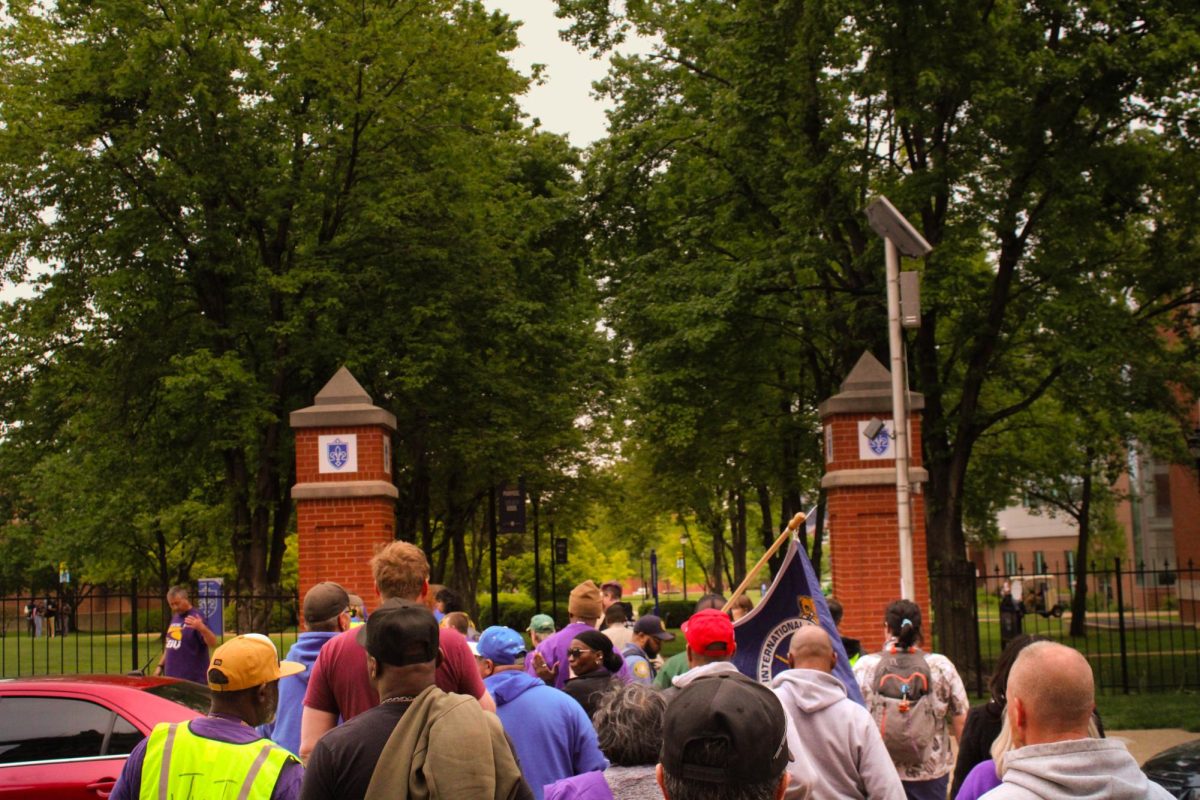Members of the Saint Louis University community met last Thursday night to discuss the medical waste incinerator in conjunction with SLU Hospital.
Neighborhood and environmental groups have been wanting to shut down a medical waste incinerator on Rutgers and Grand avenues for several months.
The incinerator is owned by Tenet Hospital but is used both by the SLU Hospital and the University to dispose of waste.
Dr. Daniel Berg, president of the St. Louis Medical Waste Incinerator Group, wrote a letter to express “grave concerns” to both the chief executive of SLU Hospital and the dean of the SLU Medical School.
According to the St. Louis Post-Dispatch, the incinerator run by SLU Hospital could be closed due to public opposition.
Medical waste incineration is the third-largest known source of dioxin in the United States, according to Berg. Dioxins are linked with decreased intelligence in the children of exposed mothers, higher rates of diabetes and higher rates of cancer.
Berg informed meeting attendees that mothers with higher levels of dioxin in their blood bore children with IQs that were four to five points lower than average. “Maybe we kill that many IQ points when have a beer after work, but this is something that these families have no choice over,” he said.
Two incinerators exist in St. Louis: One is run by SLU Hospital and the other is located in North St. Louis.
According to Berg, the incinerator in North St. Louis is located in a low-income neighborhood. It burns waste from Monsanto, BJC and other regional and out-of-state hospitals.
St. Louis County has strict regulations governing incinerators due to a law passed in 1990. However, the St. Louis city has not passed similar legislation.
“It’s environmental injustice that [these incinerators are allowed] in the poor neighborhoods and not allowed in the rich,” Berg said.
Incinerators turn garbage into ash and significantly reduce its volume. About ten truckloads of garbage are converted to one truckload of black ash, according to Berg. In this sense, incinerators are helping the environment by creating less waste to be taken to a landfill. However, incineration increases the toxicity of the waste by turning it into a gas, Berg said.
SLU and Tenet Hospitals use the incinerator as a way to save funds. The steam that is produced by the incinerator is used to heat the hospital building rather than natural gas.
The St. Louis Medical Waste Incinerator Group and several other environmental group are working together as a coalition to eliminate medical waste in St. Louis.
“We want companies to dispose of waste responsibly,” Berg said. “The first step is producing less waste.” He admits that some waste must be burned. “It’s a small percentage, though,” he said.
At the meeting, Berg said that the concern of the group is not necessarily shut down the incinerator now. However, the groups are asking SLU to stop sending its waste to the incinerator but to an autoclave.
An autoclave, according to Berg, is the best alternative to incineration. Autoclaves reduce waste in a manner that is better for the environment. Also, autoclaves cost less to use. Incineration costs around 12 cents a pound to burn, but autoclaves cost only 5 to 7 cents per pound to dispose of waste.
In his letter, Berg expressed his concern about the waste being burned in the incinerator. According to Berg, 90 percent of the waste disposed by the hospital could be inexpensively landfilled without any treatment.
“This is a particularly striking example of irresponsible waste management in that it burns materials which are not even regulated as infectious waste,” Berg said.
The second step, according to Berg, is recycling. Legislation was submitted to the Board of Aldermen, sponsored by Aldermen Freeman Bosley, Sr. about recycling measures. The legislation calls for a limit of incinerated medical waste to the 10 percent that needs to be disposed of in that manner.
Berg said his main strategy to end incineration in St. Louis is to pass a bill in the city making it illegal to burn things that do not require incineration.
An audience member chimed in, “You don’t have to be a Green Party wacko to not want dioxin in the air.”
On the SLU campus, the next step is to spread the word to other students and, eventually, meet with University President Lawrence Biondi, S.J. Also in attendance at the meeting were a couple of senators from the Student Government Association who vowed to work on legislation in support of this effort.
Washington University School of Medicine recently contracted Stericycle to steam-sterilize all its medical plastic waste in an autoclave. The waste is sent to a Stericycle plant in Kentucky.
The St. Louis Medical Waste Incinerator Group, consisting of about 100 members, conducted a letter-writing campaign to the mayor and the Washington University School of Medicine. “Over 40 people signed letters in opposition to the incinerator,” Berg said.
“In light of health and justice concerns,” Berg stated, Washington University decided to no longer operate an incinerator after meeting with students in July of 2000. “This was an important step toward building a healthier city and ecosystem,” he said.
Berg said that he hopes SLU Hospital will work in the same manner to close the Tenet incinerator for both the health and general well-being of St. Louis city residents.






